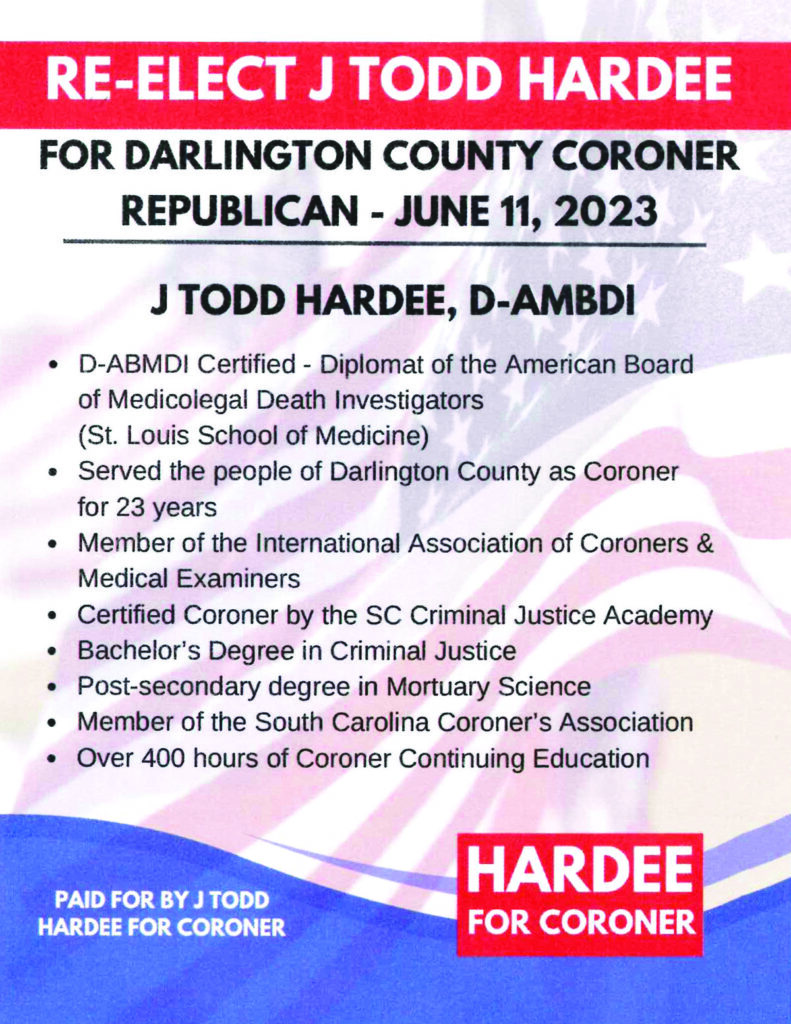Pastor shares how church offered forgiveness in the wake of Charleston church shooting


Rev. Eric Manning talked about the role of faith and forgiveness in the wake of tragedies.
Photo by Meliss Rollins
“We have to be invested
in the process of
forgiving one another.”
— Rev. Eric Manning, Mother Emanuel AME
By Melissa Rollins, Editor, editor@newsandpress.net
Francis Marion University, in conjunction with South Carolina Humanities, recently held the Beyond Mother Emanuel conference exploring the topics of culture, race and faith in America. The three-day conference featured panel discussions and lectures with a variety of speakers.
FMU Professor of English Dr. Jon Tuttle was one of the creators of the event and also served as moderator during panel discussions.
“On the topic of Mother Emanuel there is so much to say that it hard to know where to begin and when to stop,” Tuttle said. “We are going to try to have a conversation today that discusses the connection between faith, art, community and race, healing.”
During one of the panel discussions Rev. Eric Manning of Mother Emanuel AME in Charleston spoke about his church’s movement to forgive the shooter that killed nine members of the congregation, including the senior pastor, during a prayer service in 2015.
“There is one thing that…we wrestle with which stems from the tragedy: dealing with forgiveness,” Manning said. “How could the families start to forgive immediately after such a horrific event? That is something that people throughout this entire country, and dare I say the world, continue to struggle with. When they come to Mother Emanuel, that question is one that I continue to have to field and I always come down on the side of scripture.”
Manning said that forgiveness is not something that comes naturally for mankind.
“I tell folks wherever I go that I’m a pastor so I have a Biblical worldview,” Manning said. “My Biblical worldview gives me the ability to forgive, against a lot of times the most grievous atrocities that have taken place. Forgiveness is, one that I share with many folks, it is not necessarily a sprint but it’s a marathon. It means that you are going to have to continuously work at it. You are going to have to continuously forgive folks for what they have done.”
Giving specific examples of the aftermath of the shooting, Manning said that giving forgiveness is often freeing.
“So when you think about the bail bonds and the hearing that was taking place when Dylann Roof was there and the families began to speak, first Nadine (Collier, the daughter of 70-year-old Ethel Lance) spoke and she said ‘It hurts me. You took someone I love from me. I forgive you.’ I spoke with Nadine and she said that she did plan on saying that but it just felt that that was what needed to be said,” Manning said. “Anthony Thompson, the husband of Myra Thompson, came right after her and said ‘You need to repent; we forgive you.’ He talked about that and said he didn’t plan on saying that either but the Holy Spirit ministered to him and instructed him to say these words. After he did, there was such a release that took place. Bottled up anger and hostility was gone and replaced with love and the peace that surpasses all understanding.
That forgiveness was divinely inspired, Manning said, and the Bible shows Jesus Christ setting that example for his followers.
“I think a lot of times that people the question how in the world we can forgive,” Manning said. “Well, we have a wonderful model that is recorded in scripture of Jesus on the cross saying ‘Father forgive them, they know not what they do.’ In that process, it gives us something to lay hold to.”
Manning said that cultural tradition often has set the tone for forgiveness.
“From the African American perspective, we have had to do a lot of forgiving,” Manning said. “We have had to always turn the other cheek. That is something that is within us but there is also a great power, a greater authority that allows us to forgive. I think realistically when we talk about racial reconciliation and we begin to try to move the needle forward, push the ball down the field, we have to forgive all of the atrocities taking place. Even if you begin to think about the whole plight of slavery in that regard, and you think about how Africans, how blacks where packaged like sardines…it did not kill the race. But instead, it gave us this inherent form of resiliency. But even with all those atrocities and dealing with various aspects of slavery and everything that has taken place, even still to this day, it is the power of forgiveness. Forgiveness is something that we must begin to embrace. As I shared with the others, it is not a cheap form of forgiveness, it is not the cheap form of grace. It is basically saying that we have to be invested in the process of forgiving one another.”


